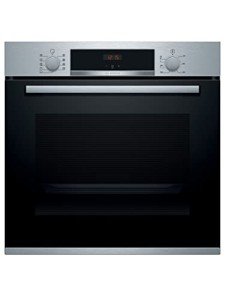The Comprehensive Guide to Built-in Ovens: Features, Benefits, and FAQs
Built-in ovens have become a staple in contemporary kitchen areas, supplying convenience, design, and effectiveness. Unlike standard freestanding ovens, built-in designs are developed to integrate seamlessly into cabinets, thereby raising both the function and visual appeals of kitchen areas. This article delves deep into the world of built-in ovens, discussing their features, advantages, setup factors to consider, and answers to often asked concerns.
What is a Built-in Oven?
A built-in oven is an appliance that is developed to be set up straight into a wall or kitchen cabinets. This setup choice offers house owners the ability to create a personalized cooking area, making the most of readily available kitchen square video while providing a streamlined, expert look.
Secret Features of Built-in Ovens
Built-in ovens are packed with features that accommodate a variety of cooking styles and choices. Secret features consist of:
| Feature | Description |
|---|---|
| Range of Cooking Modes | Alternatives such as convection baking, broiling, and self-cleaning modes to enhance cooking adaptability. |
| Size and Configuration | Readily available in various sizes and heights to fit particular kitchen layouts, ranging from compact to larger systems. |
| Design Options | Visual options consisting of stainless-steel, black stainless, and custom-made panels to match any kitchen decor. |
| Smart Technology | Numerous built-in ovens come geared up with Wi-Fi capabilities, enabling remote monitoring and control by means of smartphone apps. |
| Multi-Functionality | Some designs integrate oven and microwave or consist of steam functions to create varied cooking options. |
Advantages of Built-in Ovens
The advantages of including a built-in oven into a kitchen style extend beyond mere visual appeals. Here are some significant advantages:
1. Area Efficiency
Built-in ovens maximize counter top area by eliminating the requirement for a freestanding unit. Their integration into cabinetry enables for a cleaner kitchen design.
2. Enhanced Visual Appeal
With streamlined designs and customizable surfaces, built-in ovens enhance the general appearance of the kitchen, adding to a more cohesive style.
3. Improved Cooking Performance
Lots of built-in models use innovative cooking innovations, such as convection cooking, which flows hot air for even cooking, minimizing cooking times and improving outcomes.
4. Convenience and Accessibility
Built-in ovens are often placed at eye level, making it much easier to examine on cooking development, reducing the need to bend down, and enhancing safety.
5. Increased Home Value
A well-designed kitchen with built-in appliances can significantly increase a home's worth, making it more appealing to potential buyers.
Setup Considerations
When selecting and setting up a built-in oven, there are several aspects to consider:
- Kitchen Layout: It's vital to plan how the oven will fit into the existing area, including cabinet heights and clearance requirements.
- Electrical and Ventilation Needs: Built-in ovens generally need particular electrical setups; guarantee that the kitchen complies with regional electrical regulations.
- Expert Installation: Due to the complexity of setup, working with a specialist can make sure that the oven is installed securely and correctly.
Kinds Of Built-in Ovens
Built-in ovens been available in various types, each fit for numerous cooking styles. Below are a few of the most common:
- Single Oven: A traditional choice for daily cooking requirements, offering adaptability for baking, roasting, and broiling.
- Double Oven: Offers two separate cooking compartments, permitting synchronised preparation of several meals-- a preferred for large families and those who entertain regularly.
- Wall Oven: These ovens are fully integrated into the wall and be available in different styles, including steam ovens and combination microwave ovens.
Popular Brands of Built-in Ovens
Numerous trusted brands offer high-quality built-in ovens, understood for their dependability and range of functions:
- Bosch: Known for smooth style and advanced cooking technology.
- KitchenAid: Offers imaginative functions and multi-functional styles.
- Samsung: Integrates smart technology with a contemporary aesthetic.
- GE Appliances: Provides a series of options for various budgets.
Frequently Asked Questions (FAQs)
1. How do I pick the right built-in oven for my kitchen?
When picking a built-in oven, think about the size of your kitchen, your cooking style and frequency, the offered budget plan, and any required electrical outlets or ventilation options.
2. Are built-in ovens energy effective?
Lots of built-in ovens include energy-efficient technologies, such as much better insulation and accurate temperature controls, which can lead to less energy consumption compared to standard ovens.
3. Can I install a built-in oven myself?
While some homeowners might attempt DIY installation, working with an expert is extremely advised to make sure safe and correct setup, particularly worrying electrical connections.
4. What upkeep do built-in ovens need?
Regular maintenance consists of cleaning the oven exterior and interior, checking the seals for stability, and guaranteeing that any clever features or controls are upgraded as required.
5. Do built-in ovens featured service warranties?
Yes, many credible brand names provide guarantees on their built-in ovens, typically covering parts and labor for a specified period. Make sure to examine the details before buying.
Built-in ovens use a blend of style, performance, and functionality, making them a popular choice for both modern and standard kitchen areas alike. With thoughtful factor to consider of functions, installation, and upkeep, homeowners can boost their cooking experience while including considerable value to their residential or commercial properties. Whether selecting internet or double oven, the financial investment in a built-in model promises to transform the cooking landscape of any home.

